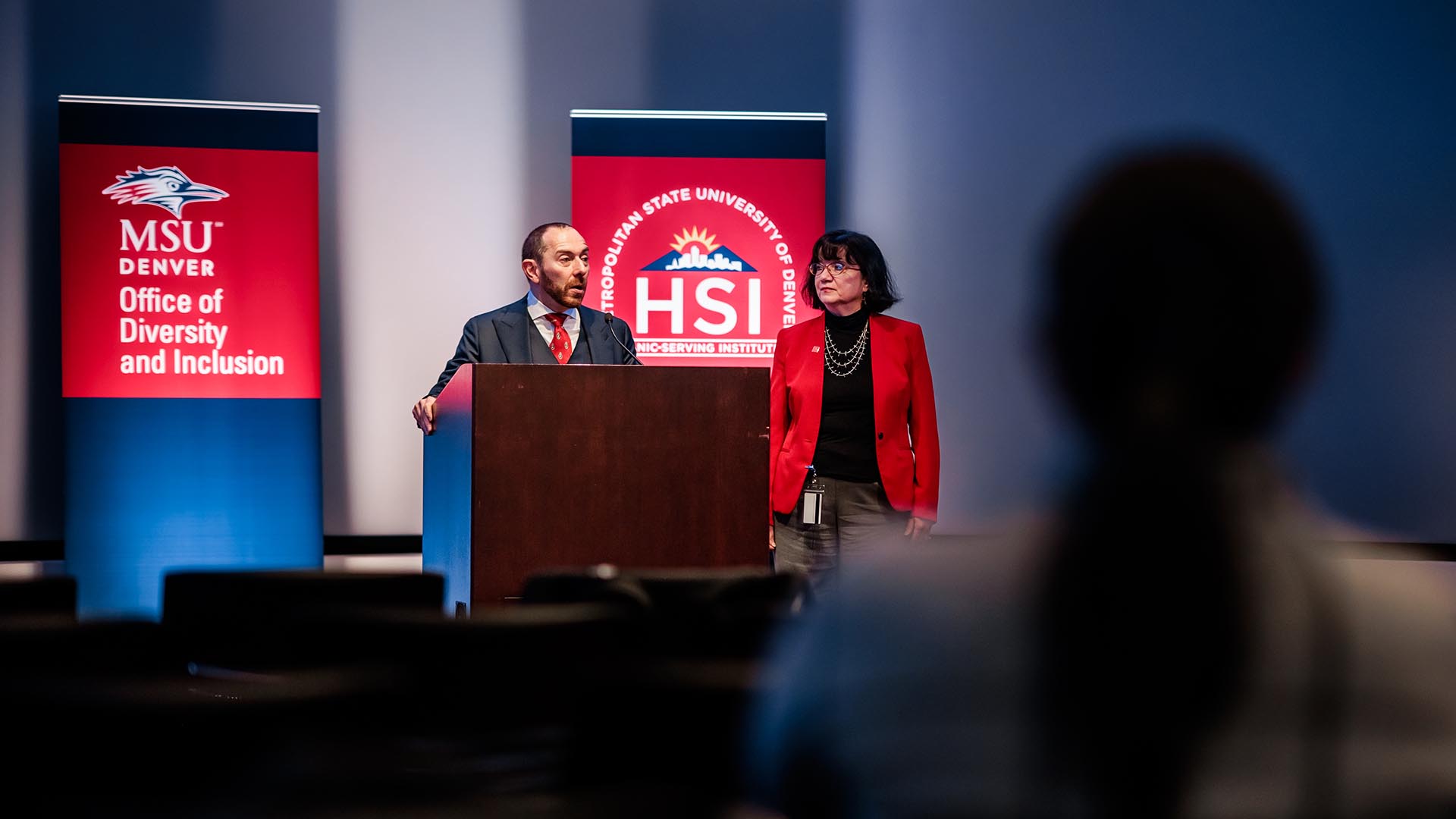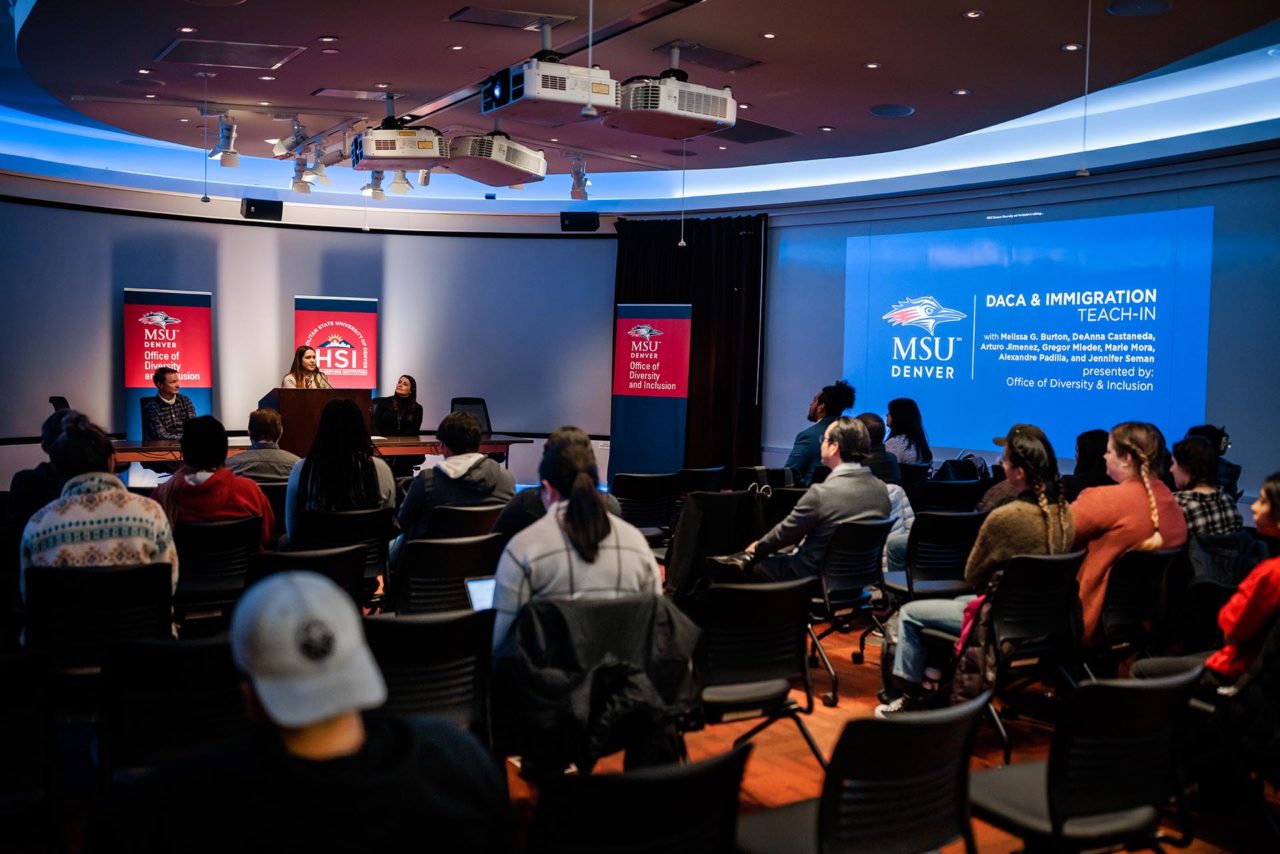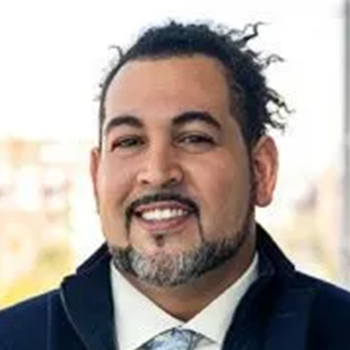Ending DACA would come at a high cost, economists warn
With the Obama-era program in legal peril, experts gather at MSU Denver to discuss the impacts of its repeal.

Eliminating the Deferred Action for Childhood Arrivals program, or DACA as it’s commonly known, would hit U.S. businesses hard, exacerbating labor shortages and costing employers billions in worker-turnover costs, economists at Metropolitan State University of Denver said Tuesday.
Research shows that federal and state governments would also lose out on billions of dollars in revenue and U.S. gross domestic product could take a $215 billion hit if DACA ends, said Alexandre Padilla, Ph.D., professor and chair of MSU Denver’s Department of Economics.
“It’s definitely bad economics,” Padilla said of the possibility that a U.S. District Court could soon terminate the program, which protects from deportation more than 600,000 undocumented immigrants who were brought to the U.S. as children and provides them with work authorization.
Padilla was among the participants in a “DACA Teach-in” event at MSU Denver, where immigration experts discussed legal, educational and economic impacts of the Obama-era policy.
A federal appeals court ruled in October that DACA was unlawful, but returned the case back to a lower court to consider it in light of a new regulation that the Biden administration added last summer.
With DACA in legal peril, Democrats in the U.S. Senate are trying to pass legislation that would provide a pathway to citizenship for qualified immigrants, known as Dreamers, before Republicans take control of the U.S. House in January.
RELATED: Dreamers reflect on a decade of DACA
Immigrant advocates are “praying the lame-duck Congress can pass the DREAM Act,” said Arturo Jiménez, J.D., an immigration lawyer and affiliate professor in MSU Denver’s Department of Chicana/o Studies.
“Right now, Dreamers are in serious limbo,” he said. “In any moment, DACA could end. That’s what we expect in the immigration world.”
Such a ruling would be extraordinarily costly to the U.S. and Colorado economies, which are already facing a shortage of workers, panelists warned. Colorado has faced a workforce shortage in recent years, with tens of thousands of jobs unfilled, according to a state report issued last year.
“Labor shortages can lead to higher prices, and we’re already feeling the sting of inflation,” said Marie Mora, Ph.D., a labor economist and deputy provost at MSU Denver.
She added that many Dreamers who would face deportation are college graduates filling critical roles in health care, education and STEM fields, while others are small-business owners contributing to state and federal tax coffers.

If DACA ends, the federal government would lose out on more than $6 billion a year in tax revenues and Colorado, where 13,000 DACA recipients reside, would lose out on more than $60 million per year, Padilla said, citing a 2017 Cato Institute report.
Meanwhile, DACA’s repeal and lack of a legislative solution could cause employee-turnover to cost businesses billions of dollars, as they would be faced with recruiting, hiring and training hundreds of thousands of new employees, he added.
“That’s why this issue is relevant to their bottom line,” Padilla said.
Despite the contentious political and legal debate over DACA, Padilla and Mora said there is a large consensus among economists that the benefits of immigration, including DACA, outweigh its costs but that their profession must do a better job of communicating their arguments and research to the public.
|
Support MSU Denver’s Dreamer Fund The University has established a Dreamer Emergency Fund to provide financial assistance for medical emergencies, dependent care, DACA renewal fees and more. The fund has helped more than 150 Dreamer students since it was established in 2020. To make a donation, visit the Student Care Center giving page and select “Dreamer Emergency Fund” from the Designation dropdown box.
|
|
“Sometimes, folks aren’t necessarily moved by the moral arguments (for DACA) and they need to hear the economic facts,” said Chalane Lechuga, Ph.D., a professor in MSU Denver’s Department of Chicana/o Studies who moderated Tuesday’s Teach-in.
RELATED: Emergency Fund keeps dreams in focus
That the event took place at MSU Denver is no coincidence, Lechuga said, because the University “has been at the forefront of supporting DACA students.”
She noted that in 2012, MSU Denver was the first university in the state to approve a reduced tuition rate for undocumented students and was a strong supporter of Colorado’s ASSET bill, which provides in-state tuition for qualified undocumented students.







